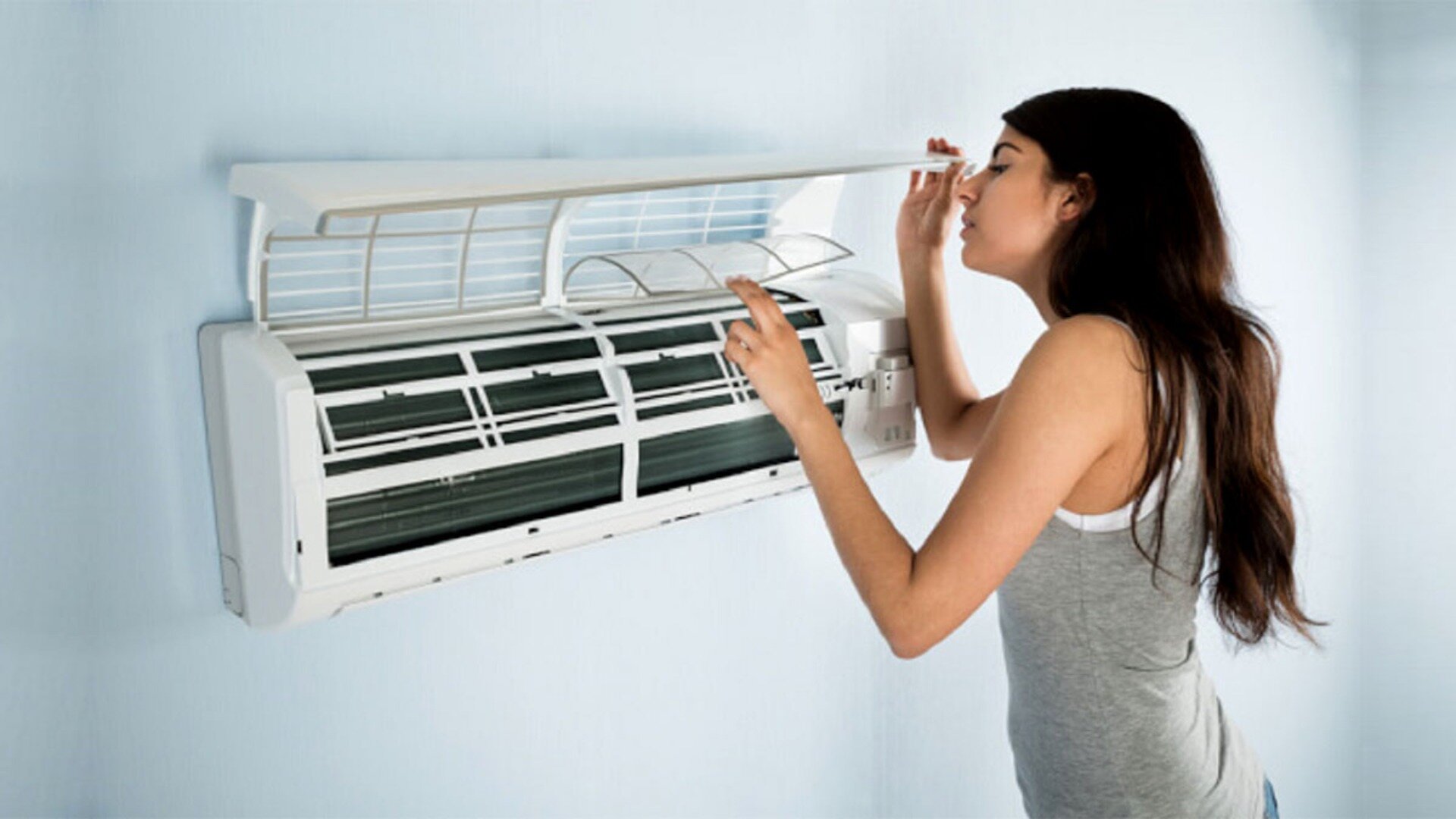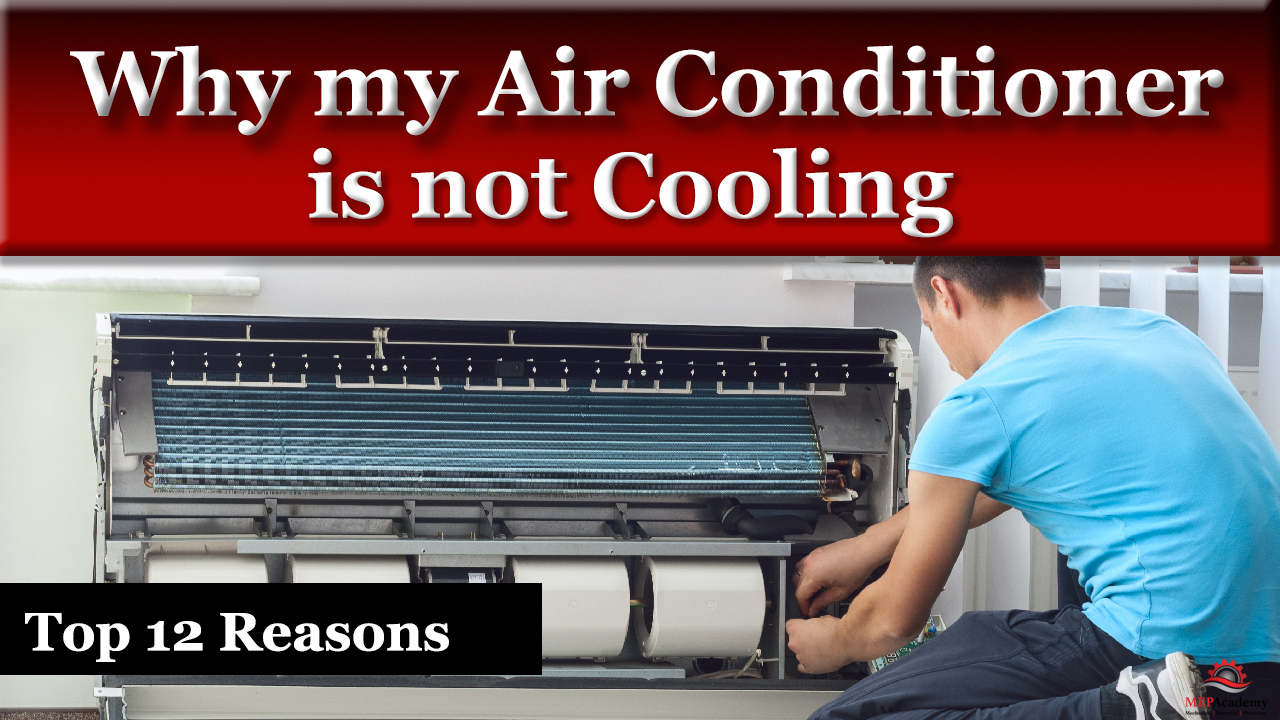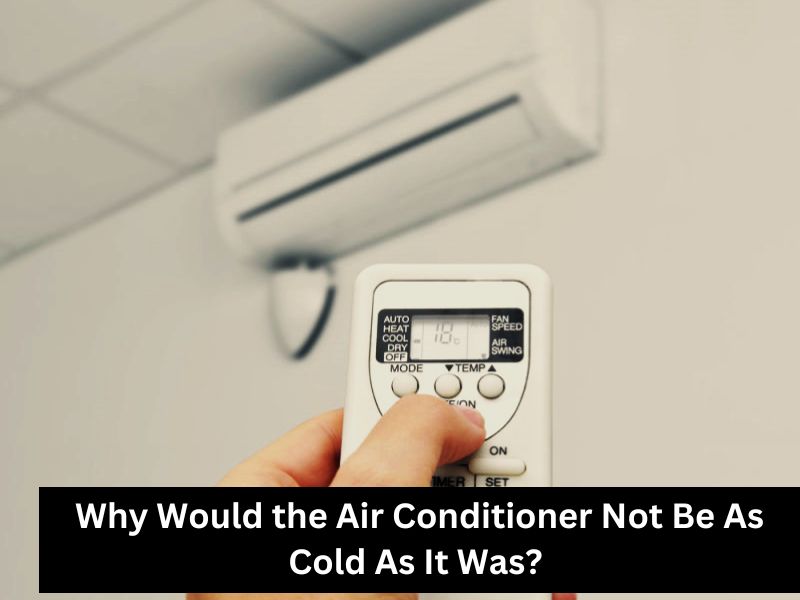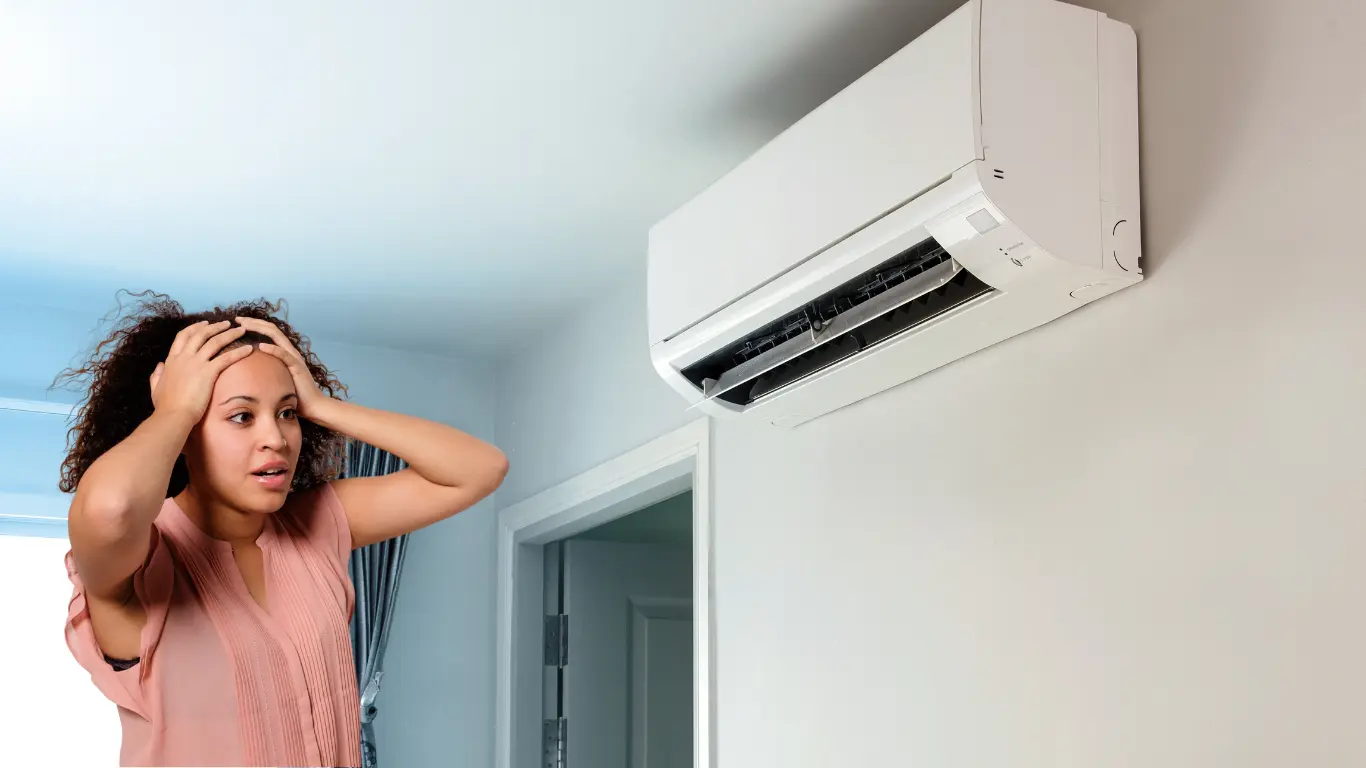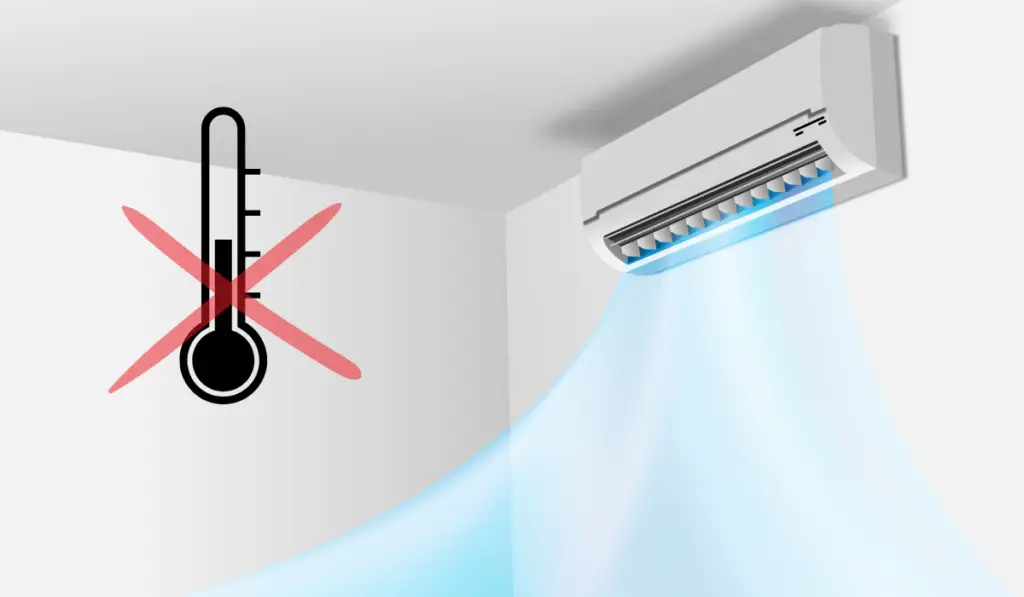Why Does My Air Conditioner Not Get Cold

A central air conditioner that isn't blowing cold air is more than just an inconvenience – it can signal underlying issues that, if left unaddressed, can lead to costly repairs and a shortened lifespan for your entire HVAC system. Understanding the common reasons behind this problem is the first step towards restoring comfortable temperatures in your home. This guide breaks down the potential causes, from simple DIY fixes to when it's time to call a professional.
Common Culprits Behind a Warm Air Conditioner
Refrigerant Leaks: The Lifeblood of Cooling
Refrigerant is the chemical compound that absorbs heat from your indoor air and releases it outside. Think of it as the "blood" of your AC system. Without the proper amount of refrigerant, your air conditioner simply cannot cool effectively. Refrigerant leaks are a common problem, often occurring at joints and connections within the system. Because refrigerant isn’t consumed, a low level indicates a leak. You may also notice ice building up on the evaporator coil.
Diagnosis: Look for signs of oil stains near the outdoor unit or listen for a hissing sound. A professional HVAC technician can use specialized equipment to locate and repair the leak, and then recharge the system with the correct amount of refrigerant.
Dirty Air Filters: The Most Frequent Offender
A dirty air filter is one of the most common, and easiest to fix, reasons for a poorly performing air conditioner. When the filter becomes clogged with dust, pollen, and other debris, it restricts airflow to the evaporator coil. This can cause the coil to freeze over, preventing it from absorbing heat properly. Restricted airflow also makes your AC system work harder, increasing energy consumption and potentially leading to compressor failure.
Solution: Check your air filter monthly and replace it every 1-3 months, or more frequently if you have pets or allergies. Using a high-efficiency particulate air (HEPA) filter can further improve air quality, but ensure it doesn't overly restrict airflow in your system.
Dirty Condenser Coils: Heat Rejection Hindered
The condenser coil, located in the outdoor unit, is responsible for releasing the heat absorbed from inside your home. Over time, this coil can become covered in dirt, leaves, grass clippings, and other debris. This insulation prevents the coil from efficiently shedding heat, causing the air conditioner to struggle to cool your home. Reduced efficiency will increase your utility bills and could eventually damage the compressor.
Solution: Regularly clean the condenser coil with a garden hose. Turn off the power to the unit and gently spray the coil from the inside out to remove any accumulated debris. Avoid using high pressure, as this can damage the delicate fins. A professional cleaning is recommended annually.
Frozen Evaporator Coil: A Blocked System
As mentioned earlier, a frozen evaporator coil can occur due to restricted airflow from a dirty air filter. It can also be caused by low refrigerant levels or a malfunctioning blower motor. When the coil freezes, it becomes insulated with ice, preventing it from absorbing heat from the air. The most common sign is lack of cool air coming from vents.
Diagnosis: Turn off your air conditioner and allow the ice to thaw completely. This may take several hours. Once thawed, check the air filter and replace it if necessary. If the problem persists, call a qualified technician to diagnose and repair the underlying cause, such as a refrigerant leak or a faulty blower motor.
Faulty Compressor: The Heart of the System
The compressor is the heart of your air conditioning system. It circulates refrigerant through the coils. When the compressor fails, your air conditioner will not cool effectively, or at all. Compressor failure can be caused by a variety of factors, including overheating, electrical problems, and refrigerant leaks.
Diagnosis: Listen for unusual noises coming from the outdoor unit. If the compressor is making a loud buzzing or clicking sound, it may be failing. A professional HVAC technician can test the compressor to determine if it needs to be replaced. Compressor replacement is often a costly repair, and in some cases, it may be more economical to replace the entire outdoor unit.
Ductwork Leaks: Wasted Cooling
Leaky ductwork can significantly reduce the efficiency of your air conditioning system. If your ducts are poorly sealed or damaged, cooled air can escape into unconditioned spaces, such as attics and crawl spaces. This means your air conditioner has to work harder to cool your home, leading to higher energy bills and reduced comfort.
Solution: Inspect your ductwork for any visible leaks or damage. Seal any leaks with duct tape or mastic sealant. Consider having your ductwork professionally inspected and sealed for optimal performance. Aeroseal is one possible technology.
Blower Motor Issues: Insufficient Airflow
The blower motor is responsible for circulating air through your HVAC system. If the blower motor is not working properly, it can reduce airflow to the evaporator coil, causing it to freeze. A failing blower motor will also impact your system's ability to circulate air throughout your home.
Diagnosis: Check the blower motor for any signs of damage or wear. Listen for unusual noises coming from the unit. A professional HVAC technician can test the blower motor to determine if it needs to be replaced.
Choosing the Right HVAC System: A Comparison of Brands and Models
When it's time to replace your old air conditioner, selecting the right system is crucial for energy efficiency, comfort, and long-term cost savings. Here's a comparison of popular brands and models, considering factors like SEER ratings, features, and warranties.
Goodman: Budget-Friendly and Reliable
Goodman is known for providing affordable and reliable HVAC systems. They offer a range of air conditioners with SEER ratings from 13 to 19. Their systems are known to be cost-effective, but they may lack some of the advanced features found in higher-end brands.
Pros: Affordable, reliable, good warranty options.
Cons: May lack advanced features, can be louder than other brands.
SEER Rating: 13-19
Warranty: 10-year parts limited warranty.
Carrier: Innovation and Efficiency
Carrier is a leading brand in the HVAC industry, known for its innovative technology and energy-efficient systems. Their air conditioners often feature high SEER ratings and advanced features like variable-speed compressors and smart controls. Expect a higher upfront investment.
Pros: High energy efficiency, advanced features, quiet operation.
Cons: Higher upfront cost.
SEER Rating: Up to 26
Warranty: 10-year parts limited warranty.
Trane: Durability and Performance
Trane is known for building durable and reliable HVAC systems. Their air conditioners are designed to withstand harsh conditions and provide consistent performance. While they may not have as many cutting-edge features as some other brands, Trane systems are built to last.
Pros: Durable construction, reliable performance, wide range of models.
Cons: Can be more expensive than some other brands.
SEER Rating: Up to 22
Warranty: 10-year parts limited warranty.
Lennox: Premium Efficiency and Comfort
Lennox offers a range of high-efficiency air conditioners with SEER ratings up to 28. They are known for their quiet operation and advanced features, such as solar-ready options and smart thermostats. Lennox is often considered a premium brand, reflecting the pricepoint.
Pros: Highest energy efficiency, quiet operation, advanced features.
Cons: Most expensive option.
SEER Rating: Up to 28
Warranty: 10-year parts limited warranty.
Understanding AFUE, SEER, and HSPF Ratings
When evaluating heating and cooling systems, it's crucial to understand the key efficiency ratings: AFUE, SEER, and HSPF. These ratings provide valuable insights into the energy performance of different systems, helping you make informed decisions.
- AFUE (Annual Fuel Utilization Efficiency): This rating measures the heating efficiency of furnaces and boilers. A higher AFUE rating indicates a more efficient system, meaning it converts more fuel into usable heat.
- SEER (Seasonal Energy Efficiency Ratio): This rating measures the cooling efficiency of air conditioners and heat pumps. A higher SEER rating indicates a more efficient system, meaning it uses less energy to cool your home.
- HSPF (Heating Seasonal Performance Factor): This rating measures the heating efficiency of heat pumps. A higher HSPF rating indicates a more efficient system, meaning it uses less energy to heat your home.
The minimum SEER rating currently mandated by the U.S. Department of Energy is 14 in most regions. However, many newer systems offer significantly higher SEER ratings, ranging from 16 to 28. Investing in a high-efficiency system can result in substantial energy savings over the long term.
Warranties and Maintenance: Protecting Your Investment
A comprehensive warranty provides peace of mind and protects your investment in a new HVAC system. Most manufacturers offer a standard parts limited warranty, typically ranging from 5 to 10 years. Some manufacturers also offer extended warranties that cover labor costs. Carefully review the terms and conditions of the warranty before making a purchase.
Regular maintenance is essential for ensuring the longevity and efficiency of your HVAC system. Schedule annual maintenance with a qualified HVAC technician. Routine maintenance includes cleaning the coils, checking refrigerant levels, inspecting electrical components, and lubricating moving parts.
When to Call a Professional
While some air conditioner problems can be resolved with simple DIY fixes, others require the expertise of a qualified HVAC technician. Call a professional if:
- You suspect a refrigerant leak.
- Your air conditioner is making unusual noises.
- The evaporator coil is frozen.
- You're not comfortable working with electrical components.
- You've tried basic troubleshooting steps and the problem persists.
By understanding the common causes of a warm air conditioner and taking proactive steps to maintain your system, you can ensure comfortable temperatures in your home and avoid costly repairs.

